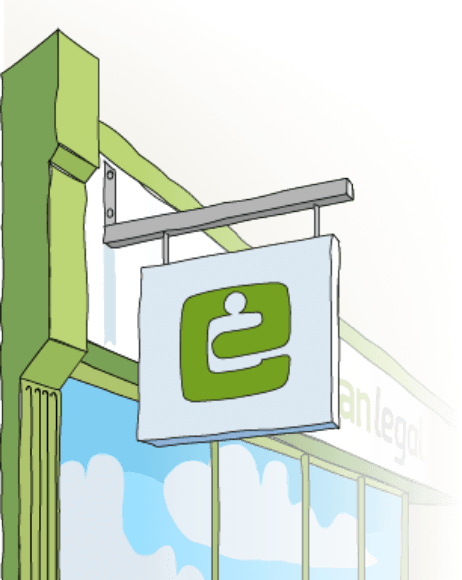My lightbulb moment: the realisation of a wonderful new way of planning for succession through which we might help business owners particularly those who loved what they did and were reluctant to let go.
Turning such an idea into a product or service that could be successfully sold at a price that works financially was a whole new challenge I was to realise over time. Our journey now turns to the home of Arsenal Football Club.
I was a guest of the Chairman of a Vistage Group (a franchise that helps business owners through peer group learning and one to one coaching) on a visit to the Emirates Stadium. 500 business owners came together to hear a key note talk by a smart US business man. In the afternoon we broke into smaller groups and I found myself listening to a brand and marketing consultant. I was later to come to learn that his real expertise was in branding rather than marketing. As a novice business owner I had not understood the distinction.
I liked his provocative and confrontational style and arranged to meet him a few weeks later in London. I was asked “Have you read “E-myths Revisited” by Michael Gerber?”. When I replied “no”, a shake of the head that said “You have a lot to learn from me” followed.
 The next day on my (newly purchased!) iPad I downloaded a book that teaches the art of business format franchising. It sounds a drab subject as I write those words but I found the book very moving.
The next day on my (newly purchased!) iPad I downloaded a book that teaches the art of business format franchising. It sounds a drab subject as I write those words but I found the book very moving.
The theme of E-myths is that it is overwhelmingly technicians not entrepreneurs who start businesses. The “Technician” is a person who loves the work that he does. Whether an engineer, a software developer or artisan the technician owner is skilled in a particular activity and wants to change the world with what he or she does.
The “Entrepreneur” by contrast is driven not by the love of his craft but principally by the desire to make money.
The third skill set needed to grow a great business the book made clear was that of the ”Manager”; the man or woman who has the skill and discipline to systemise the key processes of the business.
By wonderful and happy serendipity of the Steve Jobs story (the first book I had ever downloaded) endorsed that truth: Steve Wozniak, the highly skilled programmer who became friends with Steve Jobs, was evidently the T and Jobs was the E. A few chapters into the story Mike Makkula, an accomplished manager (and entrepreneur) who was on the Board of Apple Computers for 25 years, is introduced.
Reflecting on my childhood in Birmingham I remembered visits to see the statue of the three heroes of the Industrial Revolution. Those who have read the first Blog in this series on innovation will remember James Watt the engineer (an archetypal T), Matthew Boulton the Industrialist (the brilliant E) and William Murdoch (the unsung hero and an M).
Over the coming months as I worked with our new brand consultant, I recalled one particularly successful company that I had the good fortune to represent as their corporate solicitor. This Birmingham-based software company had T, E and M character types.
I was challenged to explain why the language in our then website seemed targeted at the Entrepreneur.
“You must be clear on the psychographic profile of your ideal customer” I was told and had up until then been sure it was the “Entrepreneur”: often the great salesman the showman.
As I further reflected on the business owners who valued the quality of our legal advice (and would pay appropriately for that service) the penny dropped: it was more likely to be the “Technician” owners rather than the “Entrepreneurs” to whom we would appeal. Often much more difficult to get to know and to help these men understand the importance of technical skill. For the entrepreneur it was much more transactional. Yes I need a solicitor but the skill can be bought and I get competing quotes.
A rebranding exercise was undertaken over the coming months and our website underwent its third change in our 6 year history as a business.
Putting people into rigid boxes marked T, E and M would not be a smart move. The real world is much more complex and nuanced and this, we concluded, should instead be seen as one lens in which to view the world. But nonetheless a powerful lens.
The other realisation is that even if an individual is a strong technician he or she can become more entrepreneurial and develop the skills of a manager. Indeed by definition an individual who has grown a business (by themselves) to a reasonable size must have a mix of the different skill sets of T, E and M. An analysis of their success leads to another fundamental insight. The importance of purpose. It is only a businessman with a profound sense of purpose who could create an Apple Computer or a Dyson corporation.
Branding is, it seems, a very different discipline to marketing and the challenges of franchising a business will test the mettle of the most able.
We had our snazzy new website designed to appeal to our Technician owners (or so we thought but more on that to come) but we were still clueless as to how to get our message into the market.
The focus on our re-branding had led to a lively debate too on where we wanted to go as a business. Should we be a niche corporate practice or strive to be a full service law firm.
Sign up to our newsletter to stay up to date with all of our news, blogs and events

